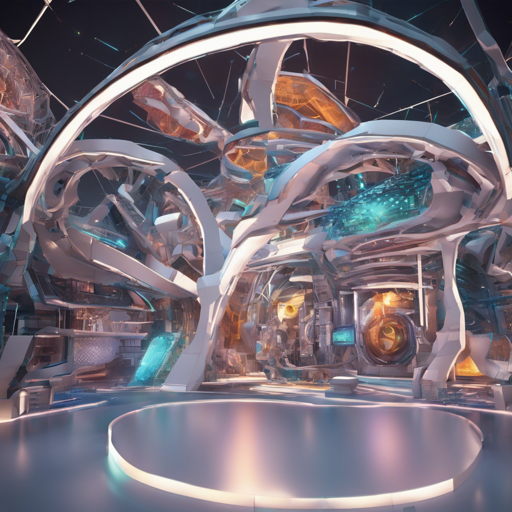Welcome to our guide on how to use the Intrinsic3D method for high-quality 3D reconstructions using low-cost RGB-D sensors. This technique harnesses the synergy of geometry optimization and surface appearances to produce stunning 3D models, making it a favorite among researchers.
What is Intrinsic3D?
Intrinsic3D is an innovative algorithm that enables the recovery of intricate geometric details and crisp surface textures in 3D reconstructions. Developed by researchers from NVIDIA and the Technical University of Munich, it works by simultaneously optimizing reconstructed geometry, surface properties like albedo, camera positions, and scene lighting.
Installation Steps
Before diving into the world of 3D reconstruction, you’ll need to set up the environment on your machine. Follow these steps:
- Clone the repository:
git clone https://github.com/NVlabs/intrinsic3d.gitsudo apt install cmake libeigen3-dev libboost-dev libboost-filesystem-dev libboost-graph-dev libboost-system-dev libopencv-dev- Create a directory:
mkdir third_party cd third_partysudo apt install libgoogle-glog-dev libatlas-base-dev libsuitesparse-devwget http://ceres-solver.org/ceres-solver-2.1.0.tar.gz
tar xvzf ceres-solver-2.1.0.tar.gz
cd ceres-solver-2.1.0
mkdir build-ceres cd build-ceres
cmake .. -DCMAKE_BUILD_TYPE=Release -DCMAKE_INSTALL_PREFIX=$PWD/.. -DCXX11=ON -DSUITESPARSE=ON -DCXSPARSE=ON -DEIGENSPARSE=ON -DBUILD_EXAMPLES=OFF -DBUILD_TESTING=OFF
make -j6
make install
cd ..mkdir build
cd build
cmake .. -DCeres_DIR=$PWD/../third_party/lib/cmake/Ceres
make -j6Working with Data
To start with, download any RGB-D sequence from the Intrinsic3D Dataset. For demonstration, we’ll use the Lion dataset:
cd ..
mkdir data
cd data
mkdir lion
cd lion
wget https://vision.in.tum.de/media/datasets/intrinsic3d/lion-rgbd.zip
unzip lion-rgbd.zip
mv lion-rgbd rgbdUsing Intrinsic3D
Once the setup is complete, it’s time to reconstruct your 3D scene. Below is how to perform keyframe selection, SDF fusion, and the final 3D reconstruction:
- Copy configuration files:
cp ../*.yml ../build/bin/AppKeyframes -s=sensor.yml -k=keyframes.yml./build/bin/AppFusion -s=sensor.yml -f=fusion.yml./build/bin/AppIntrinsic3D -s=sensor.yml -i=intrinsic3d.ymlTroubleshooting
If you encounter issues during installation or execution, here are a few troubleshooting tips:
- Ensure all dependencies are properly installed — missing libraries are a common problem.
- Check the configuration files for any mismatched parameters.
- Monitor your system’s RAM usage, as the Intrinsic3D approach can be memory-intensive.
For more insights, updates, or to collaborate on AI development projects, stay connected with fxis.ai.
Wrap Up
Using Intrinsic3D can feel like constructing a detailed model from building blocks. Just as a sculptor meticulously carves details into a block of stone, you, too, will refine layers of data into a stunning 3D masterpiece.
At fxis.ai, we believe that such advancements are crucial for the future of AI, as they enable more comprehensive and effective solutions. Our team is continually exploring new methodologies to push the envelope in artificial intelligence, ensuring that our clients benefit from the latest technological innovations.

